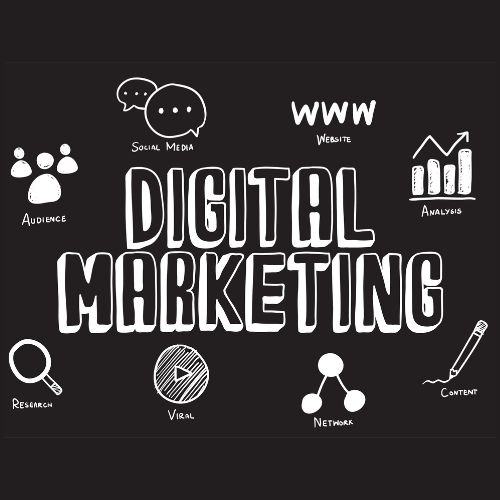Top CRM Tools for Small Businesses in 2025
![]()
In today’s competitive market, customer relationship management (CRM) is more essential than ever for small businesses. CRM tools allow companies to manage interactions, streamline processes, and improve customer satisfaction. However, with numerous options available, finding the right CRM tool can feel overwhelming. In this post, I’ll cover some of the most effective CRM tools that small businesses should consider in 2025, helping you choose the best fit for your unique needs.
Why CRM Matters for Small Businesses

CRM systems are designed to help businesses keep track of customer interactions, gather data, and analyze trends to improve service and increase sales. Small businesses, in particular, benefit from CRM tools because they help them maintain a personal touch with customers while efficiently managing resources. With an efficient CRM system, small businesses can track customer preferences, anticipate needs, and ultimately, foster stronger relationships. This can lead to repeat business, increased word-of-mouth referrals, and higher customer satisfaction—all crucial for growth.
Key Features to Look for in CRM Tools for Small Businesses
Before diving into specific tools, here are some features that are particularly valuable for small businesses:
- Ease of Use: A CRM tool should be easy to navigate and implement. Small businesses often lack the resources to train extensively, so a user-friendly interface is essential.
- Scalability: As your business expands, your CRM needs to be able to expand alongside it. Look for tools that allow you to upgrade plans or add features.
- Customization: Different businesses have different needs. A customizable CRM ensures that you can tailor it to fit your unique requirements.
- Integration: Your CRM should be able to integrate with other business tools, such as email marketing platforms, social media, and accounting software.
- Affordable Pricing: Small businesses often operate with limited budgets, so it’s essential to find a CRM with pricing that aligns with your financial goals.
Top CRM Tools for Small Businesses in 2025
HubSpot CRM
Best For: Small businesses looking for a free, user-friendly CRM with robust capabilities.
HubSpot CRM is one of the most popular options for small businesses, thanks to its generous free plan that includes essential CRM features such as contact management, deal tracking, and pipeline management. HubSpot is incredibly intuitive, and with its integration capabilities, it pairs seamlessly with email marketing, social media tools, and more. Additionally, HubSpot’s paid plans unlock more advanced features, so it can scale with your business as it grows.
Key Features:
- Contact and deal management
- Email templates and tracking
- Integrates marketing, sales, and service tools for smoother operations.
- Customizable dashboard and reporting
Zoho CRM
Best For: Small businesses seeking a fully customizable CRM with a competitive pricing structure.
Zoho CRM offers an affordable solution with impressive features. Known for its flexibility, Zoho allows businesses to customize their CRM interface, automate workflows, and generate insights with advanced reporting tools. The CRM integrates with a variety of business apps, from email marketing to accounting software, making it a versatile choice.
Key Features:
- Lead and deal management
- Social media integration
- Workflow automation
- Multi-channel communication (email, social, live chat)
Salesforce Essentials
Best For: Small businesses looking for an industry-leading CRM on a budget.
Salesforce is known as one of the most powerful CRM systems available. Salesforce Essentials offers a tailored version for small businesses, packing a significant punch without the high cost. With built-in AI, Salesforce Essentials provides valuable insights and automation options, which can help small businesses operate more efficiently.
Key Features:
- AI-powered insights
- 4. Mobile app with full functionality
- Lead and opportunity tracking
- Customer service support options
Freshsales (by Freshworks)
Best For: Businesses that want an all-in-one CRM with excellent automation and customer support features.
Freshsales is ideal for small businesses focused on building strong customer relationships through personalized experiences. It includes advanced features such as AI-driven lead scoring, custom pipelines, and integrations with other Freshworks products. The CRM is easy to use and affordable, with both free and paid plans available.
Key Features:
- AI-powered lead scoring
- Deal management and customizable sales pipelines
- Built-in phone and email tools
- Automated workflows and lead nurturing
Pipedrive
Best For: Sales-driven small businesses that want an easy-to-use, visually oriented CRM.
Pipedrive is a highly visual CRM focused on streamlining the sales process. It uses a Kanban-style pipeline interface, making it easy for teams to track deals and understand where each lead is in the sales journey. Pipedrive’s simplicity makes it an excellent choice for small businesses focused on sales-driven growth.
Key Features:
- Visual pipeline and drag-and-drop interface
- Workflow automation
- Revenue forecasting
- Customizable dashboards
Monday.com CRM
Best For: Small businesses looking for a project management CRM hybrid.
Monday.com is not just a CRM; it’s a project management tool with powerful CRM capabilities. For small businesses that need to manage projects and customer relationships simultaneously, Monday.com provides a versatile platform. It’s especially useful for creative businesses or those with intricate project workflows.
Key Features:
- Customizable boards and workflows
- Time tracking and project management
- Email and communication tracking
- Works seamlessly with various business tools.
Choosing the Right CRM for Your Small Business

With so many options, selecting a CRM may feel daunting, but following these steps can simplify the process:
- Identify Your Needs: Start by determining which features are essential for your business. Consider what aspects of your customer interactions you want to streamline or improve.
- Set a Budget: Determine a budget for your CRM solution. While free options are available, sometimes investing in a paid plan with advanced features can pay off in the long run.
- Take Advantage of Free Trials: Many CRM tools offer free trials, which allow you to test their features and interface to ensure they meet your needs.
- Evaluate Integrations: Consider the other software your business relies on and ensure the CRM you choose integrates with these tools.
- Ensure scalability: Opt for a CRM that evolves with your business. If you plan to expand, look for tools with advanced capabilities available in their higher-tier plans.
The Importance of CRM in Boosting ROI
Customer Relationship Management (CRM) plays a critical role in maximizing Return on Investment (ROI) by enhancing customer engagement, retention, and satisfaction. With a well-integrated CRM, businesses can tailor their marketing efforts, track customer interactions, and analyze buying patterns, resulting in personalized experiences that drive sales. By effectively managing leads and fostering loyalty, CRM tools empower companies to optimize their resources and streamline operations. This strategic approach not only reduces acquisition costs but also encourages repeat purchases, increasing customer lifetime value. Implementing CRM solutions can therefore be a game-changer for businesses aiming to improve their bottom line and achieve sustained growth.
Conclusion: Invest in a CRM for Long-Term Growth

Choosing the right CRM tool is a crucial investment that can greatly influence the growth of your small business. The best CRM for your business depends on your unique needs, budget, and long-term goals. Whether it’s the free functionality of HubSpot, the flexibility of Zoho, or the AI capabilities of Salesforce Essentials, each CRM solution offers valuable tools to help you build stronger, more meaningful relationships with your customers.
Choosing the right CRM can streamline operations, improve customer satisfaction, and boost revenue—all of which are essential for small business success in 2025







